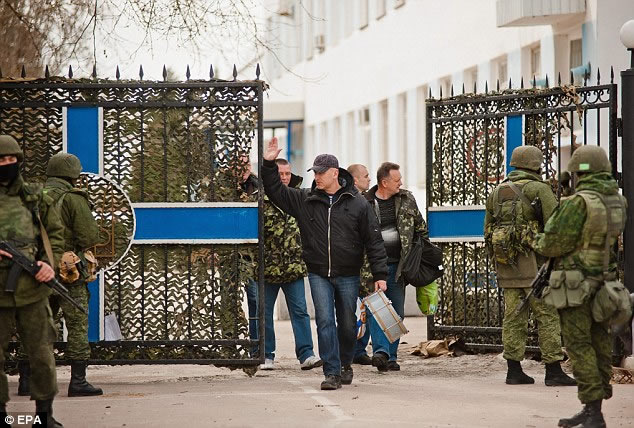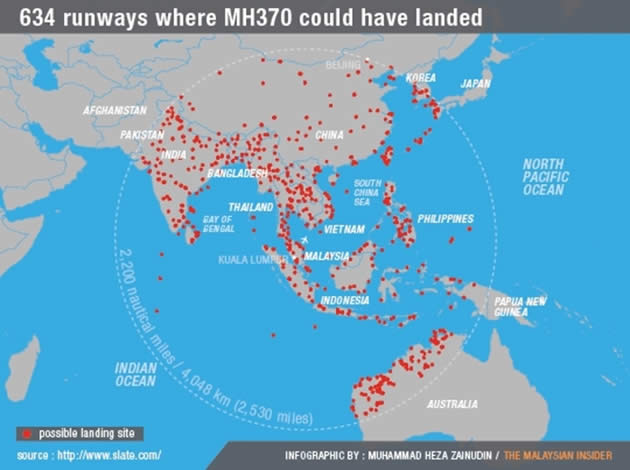Honest intellectualism
Reason Wafawarova on Thursday
Intellectualism can be disastrous when pursued in an honest manner, especially in relation to matters political. We all know what the intellectual approach in practising democracy has done to Elton Mangoma, the MDC-T deputy treasurer general who was recently suspended for doing an analysis letter on matters affecting his party, in the process making recommendations that brought out wrath demons from the party leader Morgan Tsvangirai.
There are crude methods of thought control in universities, in the media, in politics, in religion, and in corporations. We always have these kinds of questions that should never be asked, unless one does not mind being marginalised, purged or weeded out of the institution. You cannot possibly suggest that you would prefer an MDC-T led by someone other than Tsvangirai without inviting what befell Elton Mangoma, unless you do so from outside the party itself.
We all know how many dinners were held in promotion of Morgan Tsvangirai’s book “At the Deep End,” or something like that, and we read very impressive rave reviews of the book, mainly in the white-controlled South African media, and in the Western media.
Of course the rave reviews were not exactly intellectual, they need not be; they were just agenda-driven promotional work meant to elevate Morgan Tsvangirai into a magnanimous hero of the struggle for democracy, not because he is one, but because the West’s number one African enemy, Robert Mugabe, needs the image of a democratic stalwart created against his character, not his personal character, but his political character — personified by his pro-people popular policies that come at the expense of Western imperialist interests.
The man deserves vilification by definition, when one looks at the cost of his policies to the interests of his adversaries, never mind his heroic stature in African politics.
After being larruped in the July 31 2013 election, the West began to see in Tsvangirai a lost cause, and Tsvangirai in turn sees unwarranted meddling by the West in the affairs of his party. The West wants a new Trojan horse, and they have begun funding a team styling itself as the “Renewal Team,” and Tsvangirai has for the first time in his political life come to the defence of sovereignty, a domain otherwise synonymous with ZANU-PF politics.
It is almost unthinkable to imagine Tsvangirai telling the West that Zimbabwe is a sovereign country, and as such their meddling is unwelcome. But that is what has been happening with the beleaguered politician lately.
Honest intellectualism has always pointed out to the mediocrity of Tsvangirai, but the West has never listened. Writers like Miles Tendi, and politicians like Welshman Ncube have many times expressed reservations over Tsvangirai’s credentials as a competent political leader, and particularly over the character of those making up his advisory inner circle.
Equally, honest intellectualism has always pointed to the unwarranted meddling of the West in the political affairs of Zimbabwe, but Tsvangirai and his colleagues never listened — elevating the Western meddling to the nobility of promotion of human rights, even foolishly supporting the Western illegally imposed sanctions.
Of course, the meddling is a human rights matter when done in promotion of Tsvangirai’s political ambitions, and an unacceptable intrusion when it thwarts the same.
In 2004, an author by the name D. Gazi had a book published by Tiger Publishing in the UK. Given the title of the book, “Zimbabwe: Racism and The Land Question: A Colonial Legacy,” and the timing of the publishing, one would have thought the book would attract a considerable amount of media reviews, particularly in Britain. There was hardly any mention of the book anywhere in the British media, no dinners to promote it, no university or city hall forums organised to promote or discuss it.
A mere look at the cover page of the book and the title were enough reading to dismiss Gazi as a “Mugabe apologist,” and it was quite understandable and predictable that the book would not be of interest to the British intellectual community. It was not like Heidi Holland’s “Dinner with Mugabe,” or like the documentary “Mugabe and the White African,” by Ben Freeth; good selling stuff whose promotional work filled dinner tables and film theatres.
Just like Gazi’s book, Professor Ian Scoones of Sussex University did a research paper titled “Zimbabwe Land Reform: Challenging the myths,” in 2010. In his report he dismissed a number of propaganda myths peddled by the West in their bid to vilify the land reform as an “unsound policy”. He wrote of admirable success stories of the land beneficiaries, and how their lives have transformed for the better.
Needless to say his work went unreported in Western media and unnoticed among members of the West’s intellectual community. It did not meet the prescribed standards.
Honest intellectual review of both Holland’s book and Freeth’s documentary clearly shows that the works of the two do not even reach the level of nonsense. Critics have pointed out that Freeth’s documentary is not based on any factual research or experience, but on pleasing a “white audience.” It is a mixture of half-truths and fabrications, and that is what has been elevated to acts of heroism.
In the book “Understanding Power” the indispensable Noam Chomsky writes convincingly about the fate of an honest intellectual.
He writes about an author in the mould of Ben Freeth and Heidi Holland. Her name is Joan Peters, an American author who wrote the book “From Time Immemorial”.
She wrote what appeared to be a scholarly book infested with complex footnotes and blessed with flowery intellectual jargon. The book purported to show that Palestinians were all recent immigrants to the Jewish settled areas of the former Palestine during the British mandate years of 1920 to 1948.
The book got hundreds of rave reviews, and was massively popular. At last there was a book that proved there was no such thing as Palestinians, making it very clear that there were no moral issues of concern if the Israelites kicked the so-called Palestinians out. These people were nothing more than recent immigrants that had come in because the Jews had built up a beautiful country.
Peters backed up her story line by all kinds of demographic analysis, and she had the endorsement of big professor of demography from the University of Chicago, Philip M. Hauser. Peters became the intellectual hit of the year 1984, and Chomsky says intellectuals talked about her book “as the greatest thing since chocolate cake.”
A graduate student by the name Norman Finkelstein started checking the references, and it turned out that the whole book was a hoax, that it was completely faked. Chomsky’s guess is that the book was probably the work of some intelligence agency, and perhaps Joan Peters was only made to sign it as hers.
Norman Finkelstein acted against advice and pursued the matter of this huge fraud by submitting articles to journals. They published nothing, and did not even bother a response to him. His professors at Princeton University suddenly started shunning and ignoring him, treating him like a leper. It became so unbearable that he had to quit the programme. His ideas stunk, and no one wanted to talk or to be associated with him.
On the advice of Professor Chomsky, he switched departments, but when he got to the point of writing his thesis, he could not get the faculty to read it. Everyone ran away, and he could not get an opportunity to defend his thesis. Thanks to sheer embarrassment, the faculty professors finally just granted him his PhD, but no one was ready to write any recommendation letter for him, or even acknowledge that he was a student at Princeton University.
I get a lot of people asking me if Macquarie University is aware of what I write, and the context is exactly the same. You cannot be acknowledged as an alumnus if you do not meet prescribed compliance standards.
The best that Finkelstein ever got by way of employment that time was a part time job as a social worker responsible for teenage dropouts, and no university would take him on as a professor, regardless of his indisputable brilliance.
But Finkelstein prevailed in exposing the Peters hoax, starting with the small intellectual community of New York. When the book went to England, Chomsky alerted the more independent intellectuals there about Finkelstein’s work on the book, and that nailed it. The Times Literary Supplement, the London Review, the Observer, and many others had their reviews and all came to the conclusion that the book did not even reach the level of idiocy, and the kindest comment Peters got in England was “ludicrous” or “preposterous,” according to Chomsky’s description of events then.
Sadly, just about all the British intellectuals avoided acknowledging Finkelstein’s work, or quoting him, although they evidently relied on his work to demolish the dishonest work of Joan Peters. That is the fate of an honest intellectual. You are not even acknowledged even when you are right. There is no wonder that when Western ambassadors stationed in Harare recently condemned political violence they avoided naming the MDC-T or its leader, although everyone knows that the only political violence that happened was within the MDC-T, and that the embassy statements issued were directed at the party. Not even one Western media outlet has reported on the violence, unlike when any form of political violence is attributable to the ruling ZANU-PF. That has to make international headlines, not the thuggish behaviour from Tsvangirai’s goons.
Now disgruntled MDC-T officials are falling over each other revealing in detail that political violence has always been central to the party’s operations, chronicling many past incidences in the past, some known already, some not in the public domain. Chris Dhlamini is a former director of security in the MDC, and he penned an article chronicling shocking incidents of violence within the MDC-T, dating back to the formative days of the party.
But many honest intellectuals have written in the past that the culture of violence is inherent in the MDC-T political landscape, and were roundly dismissed as Mugabe apologists, or CIO agents.
There was a time one could easily be a good candidate for the Western sanctions list for simply pointing out that there were shortcomings within the MDC-T, and many writers paid dearly for braving it out and writing in criticism of Tsvangirai, including this writer.
Now these long suffering victims of unwarranted persecution have their work used by people who now want to see the back of Tsvangirai, and there is no acknowledgement whatsoever.
Clearly Tsvangirai has lost middle class support in Zimbabwe, and that is precisely because he has squandered his artificial integrity bestowed upon him by media power and by the goodwill of his political handlers in the West. No sane intellectual mind wants to be associated with the politician at the moment, and the man has dramatically struggled to organise support even from the urban lower class — his traditional stronghold.
At the moment Tsvangirai simply stinks politically.
Shunned by the middle class and shunned by his Western funders, he now wants the remnant of his supporters to sell goats and contribute towards the running of his party. From massive Western moneybags to tiny coffers of goat money is the best description of Tsvangirai’s political fate.
If only Tsvangirai had trusted goat money from the formation of his party, he would at least enjoy the decency of home-grown politics.
It is highly unlikely that the goat money will come anyway, especially now that the goat owners know a little too much about Tsvangirai’s appetite for luxury and pleasure, which is certainly far deeper than his proclaimed passion for freedom and democracy.
Not many people would fancy the idea of selling their goats so that Morgan Tsvangirai can enjoy luxurious boat cruises on foreign oceans.
Zimbabwe we are one and together we will overcome. It is homeland or death!
REASON WAFAWAROVA is a political writer based in SYDNEY, Australia.









Comments